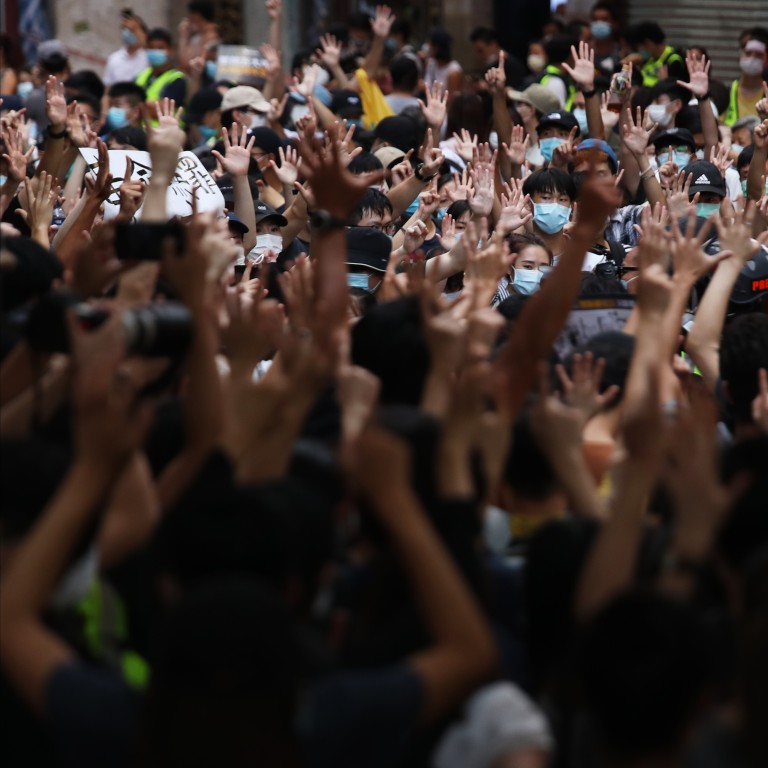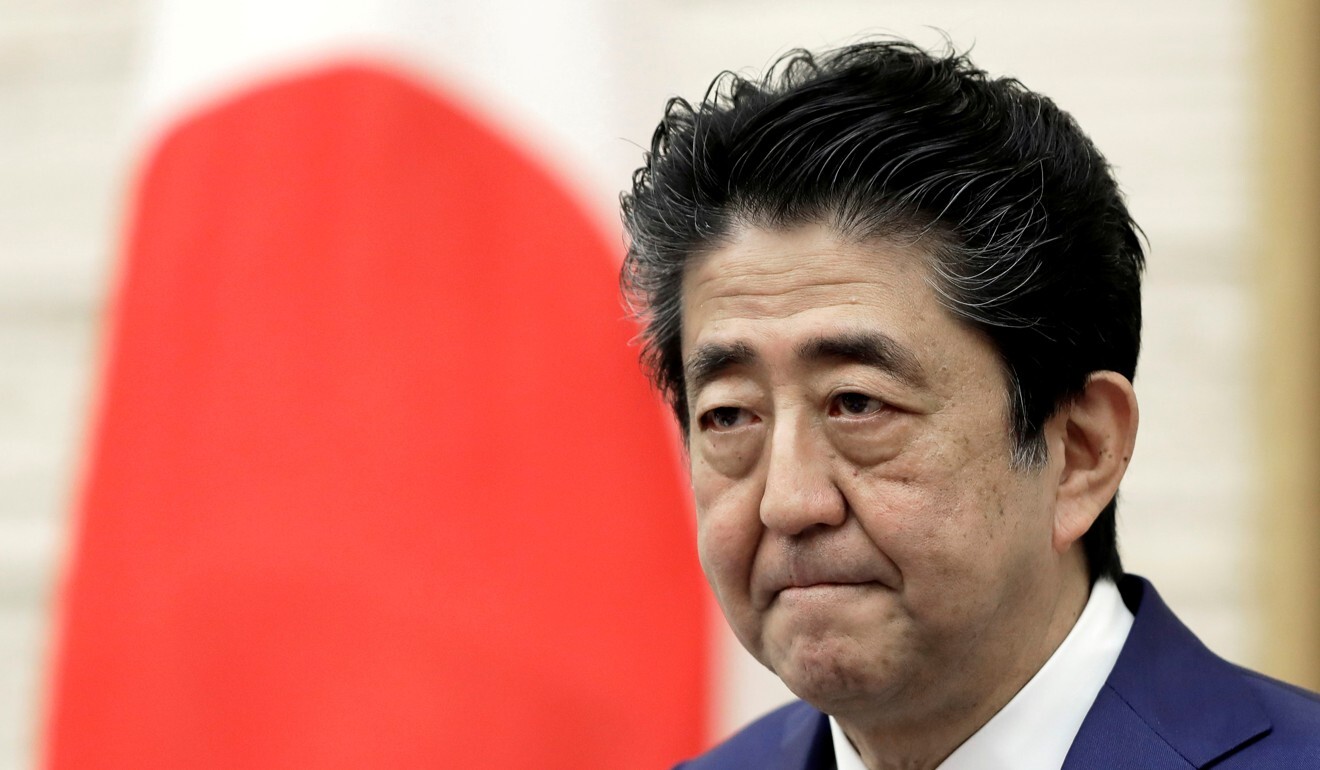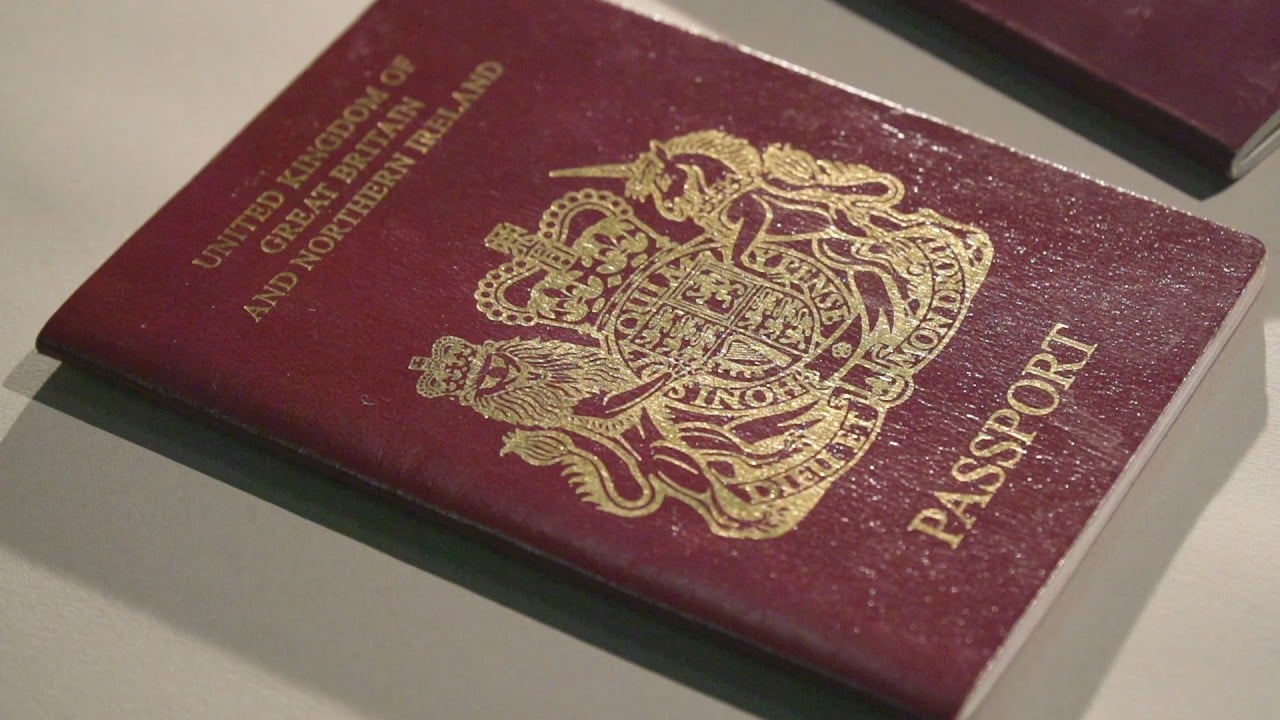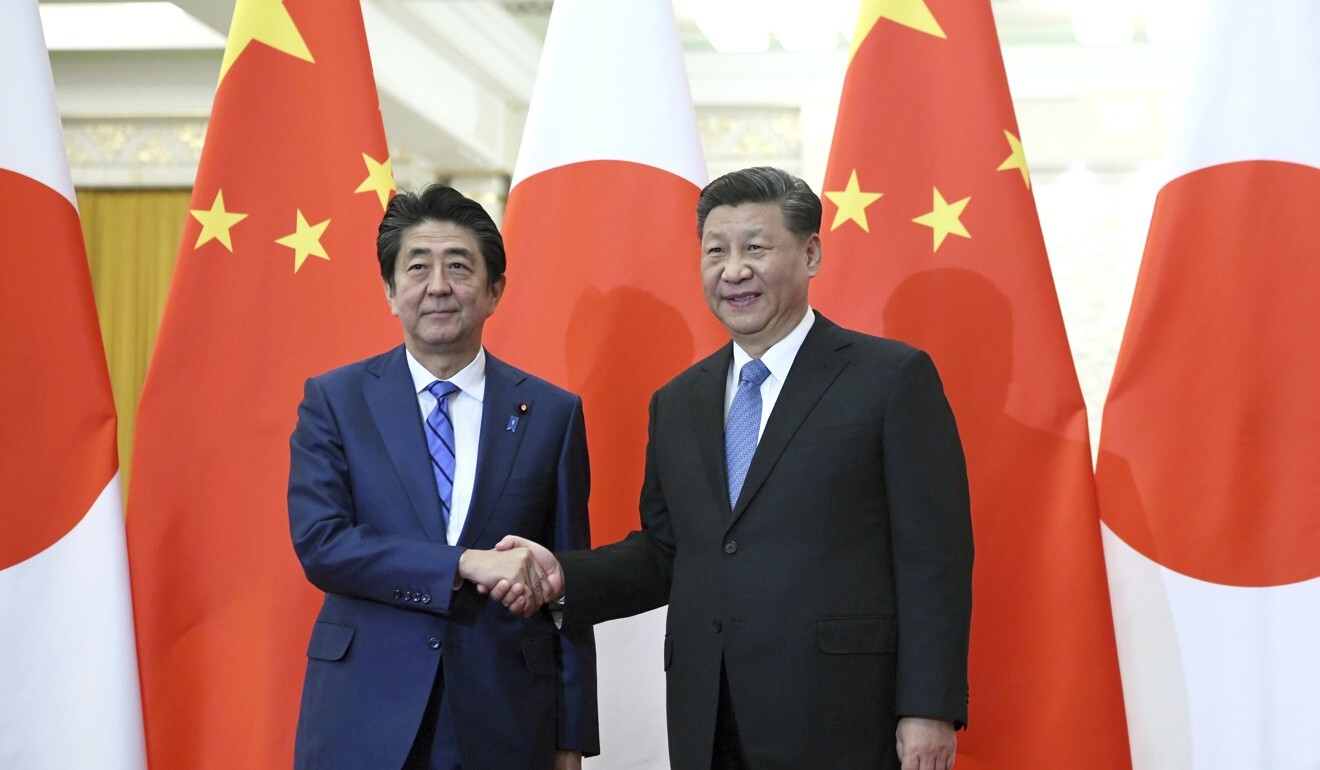
Hong Kong national security law: for Japanese, a chance to ‘poke red China’?
- While many Japanese have taken to the internet to call for solidarity with Hong Kong’s protesters, leader Shinzo Abe has been conspicuously silent
- Reaction may be more a gauge of Japanese animosity towards China than an expression of support for activists, says professor
The response from Japanese people, on the other hand, has been swift and strong – although Robert Dujarric, a professor of international relations at the Tokyo branch of Temple University, says the reaction may be more a gauge of Japanese animosity toward China rather than disagreement over the contentious legislation, which took effect at 11pm on Tuesday.
“There are going to be some in the Japanese business community with operations in Hong Kong who are going to be alarmed at this change and probably unhappy with China, but I think that for most Japanese posting on websites this is a chance to poke ‘Red China’,” he said.
One message on the 2-Channel site said simply, “Democracy is dead”, while another warned China was unlikely to be satisfied with simply subsuming Hong Kong, cautioning, “I’m not laughing. Next to Hong Kong is Taiwan; next to Taiwan is Okinawa, and next to Okinawa is …”

The national security law could turn Hong Kong into Asia’s Monaco
Yet another poster wrote, “Japan, along with the rest of the world, needs to be strong. Condemn Communist China in no uncertain terms for their human rights abuses, torture and execution of so many millions of minorities.”
“These people are highly educated, well off, share Japanese values of democracy and a love of freedom and would be a huge shot in the arm of Japanese industry,” the message added. “They would fit in seamlessly with Japanese. Save the youth of HK! Fight the Hong Kong government, thug police and the authorities!”

01:38
UK offers Hongkongers with BN(O) passports path to citizenship after new national security law
“Now Hong Kong citizens fear being exposed to state violence that is all the more horrific than the terrible repression they have been subjected to so far. South Korea and the rest of the world must move right now before it is too late”, they said in a statement. “However, the Korean government is still taking no position, deferring to [China].”
The conservative South Korean newspaper Chosun Daily reported that activists had held rallies in support of the protests in Hong Kong and put up posters denouncing the legislation at various universities in Seoul and some provincial cities.
In Japan, the issue has come to a head a month after three activists from Hong Kong criticised Beijing’s new legislation in an online press conference organised by The Foreign Correspondents’ Club of Japan and called on Tokyo to show its disapproval.
Plans to invite the Chinese leader to come to Japan in November are still in place, although Chow said a state visit “might not be very appropriate” given the human rights situation in Hong Kong was “being criticised by the international community”.

DIFFICULT POSITION
Abe, however, was in a difficult position, said Yoichi Shimada, a professor of international relations at Fukui Prefectural University.
“The Japanese government is maintaining a low-key posture because it is afraid of antagonising the Chinese Communist Party,” he said. “Many conservatives believe that Japan should follow Washington’s lead and be much more vocal in condemning China’s actions.
“Abe is almost certainly under pressure from the conservative wing of his own party, but he is also being pressured by businesspeople who are deeply afraid of upsetting Beijing and are insisting that he refrain from being too critical.”
Troubled Hong Kong, China’s gateway to markets, could prove too costly
Japan is Hong Kong’s third largest trading partner, behind mainland China and the US, and in 2019 imported US$33.72 billion of goods from Japan. Electronic equipment was the largest trade segment, followed by machinery and precious stones and metals. Japan has around 1,900 companies with a presence in Hong Kong and imports from the city accounted for 2.5 per cent of Japan’s total trade in 2019, making it Japan’s ninth-largest trading partner.

03:25
Hong Kong police arrest 10 under new national security law
“There are economic tools with which to attack China, but for Japan they would only work if it is part of a coordinated process,” he said. “But Abe will also be thinking that Trump could decide to ‘do a deal’ with China that would leave Japan completely in the lurch and facing an angry Beijing.”
Also concerning, said James Brown from Temple University, were the objections of conservatives within Abe’s own Liberal Democratic Party (LDP) who had accused him of “weak-kneed diplomacy”.
Brown said these calls would “only become stronger as the prime minister’s popularity fades further”.
Regarding Xi’s visit to Japan, both Tokyo and Beijing have yet to decide on the timing after postponing it from this spring due to the coronavirus pandemic.
“Privately, Abe may also hope that the pandemic gives him an excuse to permanently shelve the visit,” said Brown. “At one point, the visit was seen as an opportunity for Abe to demonstrate his stature as a statesman and diplomatic acumen. Now, it is a political liability.”
Foreign affairs experts said the report by the ruling party’s mouthpiece could be translated as a sign North Korean leader Kim Jong-un was eager to obtain more aid from China, the country’s closest and most influential ally in economic terms.
Additional reporting by Maria Siow, Park Chan-kyong, Kyodo

